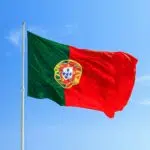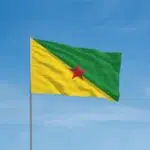French Guiana marks Slavery Abolition Day on June 10 every year. It is a public holiday, and it is also recognized as Emancipation Day in some nations. This day raises awareness of the atrocities of the slave trade era and serves as a reminder of the brutality suffered by enslaved Africans and its consequences. This holiday was first observed in 2012, even though the historical event dates back to the abolition of slavery in the colony in 1848. It is a time of sober reflection and a celebration of the prevalence of truth and freedom for all men.
History of Slavery Abolition Day (French Guiana)
French Guiana is a French overseas department situated on the western Atlantic coast of South America. Since 1624, the French have tried to establish settlements here, and one was established in 1643. However, due to attacks from natives and other European countries, the French were forced to abandon their posts several times until the Treaty of Paris was signed in 1814.
French Guiana was developed as a slave society after the French imported Africans as enslaved workers on large plantations. On April 27, 1848, the French government declared the abolition of slavery in its territories and granted emancipated slaves citizenship. However, it took over a month for the news to reach French Guiana, which is why June 10 is observed as Slavery Abolition Day.
France, like the other major European countries at the time, was eager to broaden its reach into the new world. It set up colonies on the American mainland but also seized control of several Caribbean islands.
These new settlements required a large number of workers to drive labor-intensive activities with high mortality rates, such as sugar cane plantations, so the French turned to enslaved Africans. Louis X of France ended slavery in the Kingdom of France in 1315, but then that law was never linked to the colonies, despite an attempt in the 1500s to expand it to all corners of the kingdom. The French Republic abolished slavery in February 1794, but Napoleon repealed that decree in 1802.
The decree law of Schoelcher eradicated slavery in all French colonies on April 27, 1848, under the Second Republic, with general and unconditional emancipation. The enslaved people were purchased from the colonists and then freed by the state. Countries that commemorate the abolition of slavery may do so on different dates because the abolition took time to reach different colonies.
Slavery Abolition Day (French Guiana) timeline
The French attempt to establish settlements in French Guiana.
They finally establish a base in French Guiana.
Approximately 13,000 Africans are captured by the French for enslavement in the French West Indies.
In February, the French Republic puts an end to slavery.
Slavery Abolition Day (French Guiana) FAQs
Is French Guiana safe?
Although crime is low in French Guiana, serious crime does occur. Avoid isolated areas, such as beaches, especially after dark. Carry no large sums of money or jewelry with you. Leave valuables and travel documents in hotel safes and safety deposit boxes.
What was the primary reason for slavery?
Slavery was introduced to the Western Hemisphere by European settlers in the 1500s. In the absence of cheap labor from other sources, white settlers increasingly relied on imported enslaved Africans. Slavery in British North America by the early 1700s meant African slavery.
Who abolished slavery?
President Abraham Lincoln signed the Joint Resolution of Congress implementing the proposed amendment to the state legislatures on February 1, 1865.
How to Observe Slavery Abolition Day (French Guiana)
Study history
Discover more about the slave trade's history and the serious impacts it had. Search the books and the web to discover when and why it started.
Raise awareness
Raise awareness about the heinous acts of the slave trade. Share useful information about the slaves’ fight for freedom around the globe, which resulted in its abolition.
Participate in events
On this day, many countries host various events such as seminars, plays, and poetry readings. Participate in these activities to learn more about the day.
5 Interesting Facts About Slavery
Slavery laid the groundwork
The massive infrastructure needed to transport eight to 10 million Africans halfway around the world required the construction of entire cities in England and France, including Liverpool, Manchester, and Bordeaux.
Slavery was a national business
Slavery made the American South the richest and most powerful region in America until it was destroyed by the Civil War.
Slavers used a different “Bible”
Some enslavers educated and converted their enslaved people to Christianity, but they could not allow them to read the “Bible” because it contained several anti-slavery passages.
Vicious dogs were used to track runaways
Runaway enslaved people were typically difficult to track and dangerous to approach and capture, so ferocious dogs were bred to track them down.
Some enslaved people were also whites
When we think of slavery, we often think of transatlantic slavery, but that was only one type of slavery; others occurred elsewhere and included white victims.
Why Slavery Abolition Day (French Guiana) is Important
It's a chance to make a difference
The goal is to raise awareness of the scourge of modern slavery and commit to ending it. The day presents an opportunity to make a difference.
It commemorates liberty
This day commemorates the liberation of enslaved people. It also remembers and honors all victims of the heinous slave trade.
It is a human rights celebration
This is a day to celebrate human rights. This day demonstrates the need for more discussion and priorities to be placed on civil liberties.
Slavery Abolition Day (French Guiana) dates
| Year | Date | Day |
|---|---|---|
| 2026 | June 10 | Wednesday |
| 2027 | June 10 | Thursday |
| 2028 | June 10 | Saturday |
| 2029 | June 10 | Sunday |
| 2030 | June 10 | Monday |














